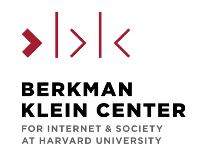Security, Privacy, and Innovation:
Reshaping Law for the AI Era
Virtual Symposium | Fall 2021
Artificial intelligence (AI) is having profound effects on all aspects of our society, the human experience, and national security. AI offers the potential to expand knowledge, increase prosperity, and provide solutions to global challenges. At the same time, public and private actors have harnessed AI to supercharge cyber attacks and disinformation campaigns, weaken social cohesion, and subvert individual rights. And legal frameworks have yet to grapple with serious questions around algorithmic bias and privacy.
In partnership with the National Security Commission on Artificial Intelligence, the Berkman Klein Center, and Just Security, the Reiss Center on Law and Security convened a virtual symposium of experts to debate critical legal issues around AI. The symposium explored how the law must adapt to promote innovation while addressing serious questions around the development and use of AI in the United States and globally.
The first session of the symposium, Responding to AI-Enabled Surveillance and Digital Authoritarianism, examined the potential uses of AI-enabled technologies to supercharge surveillance, suppress dissent, enable human rights violations, collect personal data, and impose social control around the world. The panel convened legal and technological experts to address the role of international law, technical standards bodies, and organizations like the OECD to address this growing challenge and explore how democratic nations can use legal tools to promote responsible technology and counter malign uses of AI-enabled systems.
This event was approved for one New York State CLE credit in the category of Areas of Professional Practice. The credit was both transitional and nontransitional; it is appropriate for both experienced and newly admitted attorneys.
Friday, September 17
12:00 p.m. – 1:15 p.m. EST
Speakers:
- Olufunmilayo Arewa, Murray H. Shusterman Professor of Transactional and Business Law, Beasley School of Law, Temple University
- Chinmayi Arun, Resident Fellow, Yale Law School; former Fellow at the Berkman Klein Center of Internet & Society
- Ronald Deibert, Director, The Citizen Lab, Munk School of Global Affairs and Public Policy, University of Toronto
- Amb. Eileen Donahoe, Executive Director, Global Digital Policy Incubator, Stanford University’s Cyber Policy Center; Advisory Board member, Just Security
- Jonathan Zittrain, Faculty Director, Berkman Klein Center for Internet and Society, Harvard Law School; Editor, Just Security (moderator)
The second session of the symposium, Constitutional Values and the Rule of Law in the AI Era: Confronting a Changing Threat Landscape, focused on how AI-enabled technologies are changing the threat landscape and consider safeguards needed to protect constitutional values and the rule of law more broadly. An expert legal panel considered issues such as the adequacy of the Fourth Amendment in the AI era; the unique equities and issues raised by government use of AI in the intelligence, law enforcement, and border security contexts; and growing concerns around algorithmic bias, biometric technologies, deep fakes, malign information, and other AI-enabled cyber activities, and the need for regulation to address these challenges.
This event was approved for one New York State CLE credit in the category of Areas of Professional Practice. The credit was both transitional and nontransitional; it was appropriate for both experienced and newly admitted attorneys.
Friday, September 24
12:00 p.m. – 1:15 p.m. EST
Speakers:
- Glenn Gerstell, former NSA General Counsel; Senior Adviser, Center for Strategic and International Studies
- Aziz Huq, Frank and Bernice J. Greenberg Professor of Law, University of Chicago Law School
- Riana Pfefferkorn, Research Scholar, Stanford Internet Observatory
- Julie Owono, Executive Director, Internet Sans Frontières (Internet Without Borders); Member, Facebook Oversight Board; Affiliate, Berkman Klein Center on Internet & Society (moderator)
Panel 1
Panel 2
The third session of the symposium, Protecting and Promoting AI Innovation: Patent Eligibility Reform as an Imperative for National Security and Innovation, consisted of two one-hour panels with a 10 minute intermission in between. The first panel featured a debate between arguments for and against reform to the patent eligibility doctrine.
The second panel added further insight to these positions and discussed practical impacts on innovation in AI and other emerging technologies. The discussion covered national security implications, capacity, and comparative issues.
This event was approved for two New York State CLE credit in the category of Areas of Professional Practice. The credit was both transitional and nontransitional; it was appropriate for both experienced and newly admitted attorneys. CLE Reading Materials.
Friday, October 1
12:00 p.m. – 2:10 p.m. EST
Panel 1 Speakers:
- Andrei Iancu, Former Director, U.S. Patent and Trademark Office
- David Jones, Executive Director, High Tech Inventors Alliance
- Paul Michel, Former Chief Judge of Federal Circuit
- Ruth L. Okediji, Jeremiah Smith, Jr. Professor of Law, Harvard School of Law (moderator)
Panel 2 Speakers:
- Ryan Abbott, Professor of Law and Health Sciences, University of Surrey School of Law; Adjunct Assistant Professor of Medicine, David Geffen School of Medicine, UCLA
- Drew Hirshfeld, performing the functions and duties of the Under Secretary of Commerce for Intellectual Property and Director of the USPTO
- Hans Sauer, Deputy General Counsel, VP for IP, Biotechnology Industry Organization
- Laura Sheridan, Senior Patent Counsel and Head of Patent Policy at Google
- Kristen Jakobsen Osenga, Austin E. Owen Research Scholar & Professor of Law, University of Richmond School of Law (moderator)





